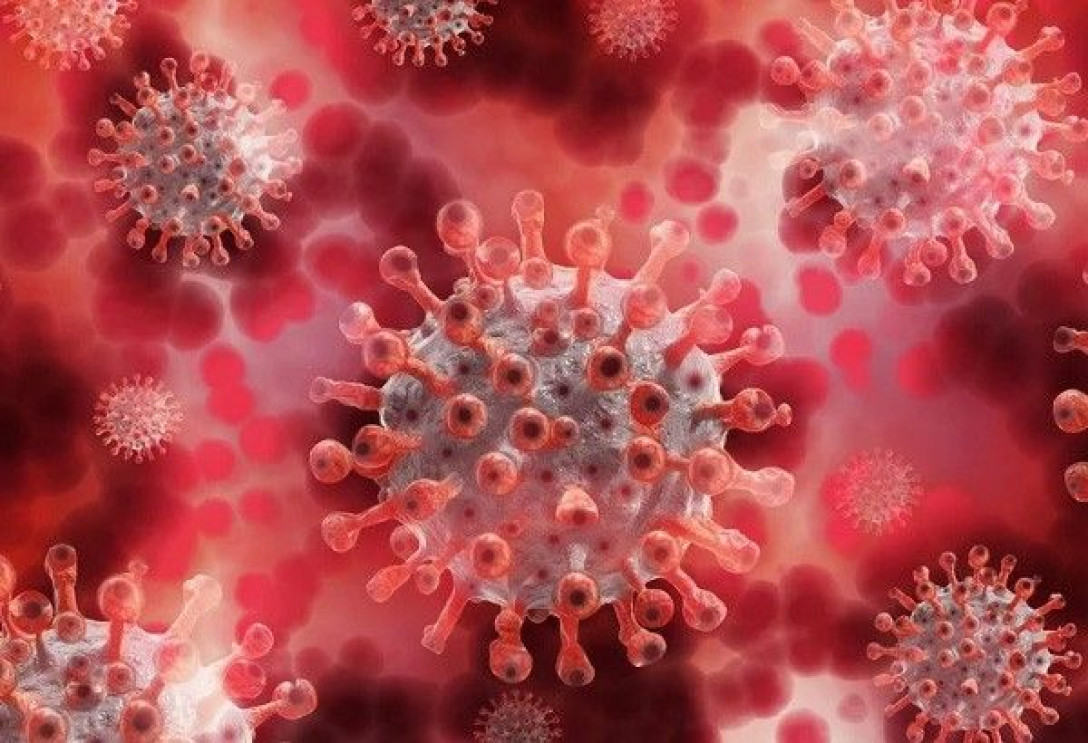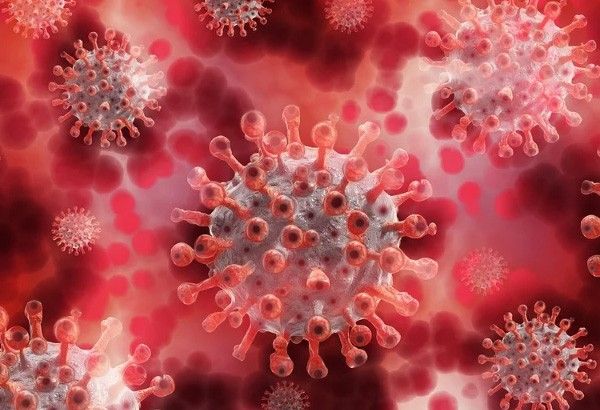News
COVID-19 vs Cancer: Which is worse?
By | April 17, 2020

MANILA, Philippines — Novel coronavirus disease 2019 (COVID-19) and cancer are both deadly. Like thieves, they sneak into one’s life so stealthily and one doesn’t notice them in the body until they’ve gotten into the system so deeply, you just have to see a doctor.
MANILA, Philippines — Novel coronavirus disease 2019 (COVID-19) and cancer are both deadly. Like thieves, they sneak into one’s life so stealthily and one doesn’t notice them in the body until they’ve gotten into the system so deeply, you just have to see a doctor.
World Health Organization (WHO) figures as of May 1 show that there are 3, 175, 207 new cases and 224, 172 deaths from COVID every 24 hours around the world. In the Philippines, Department of Health figures reveal that 904 COVID deaths were recorded out of 15,049 cases as of May 27.
Cancer, on the other hand, claimed 9.6 million lives in 2018. The same report by WHO’s International Agency for Research on Cancer shows that one in five men and one in six women get sick of cancer in their lifetime.
Dr. Beatrice Tiangco, director of The Medical City’s Augusto P. Sarmiento Cancer Institute, compared COVID-19 and cancer.
In an exclusive interview with Philstar.com, Tiangco said that in 2018, it was estimated that over 86,000, or more than 7,000 people per month died of cancer in the Philippines.
On the other hand, in the three months of COVID-19 in the Philippines (March to May 2020), less than 1,000 have died, or less than 400 per month case fatality rate.
“The COVID virus has a life span of less than a month. It dies on its own -- usually in seven to 10 days -- without treatment.”
A cancer cell, on the other hand, said the oncologist, does not die on its own.
“It does not know how to die. Only surgical removal, chemotherapy and radiation can kill it. If you do not kill or remove every last cancer cell in the body, the remaining ones will grow again, sometimes more aggressive than before,” she explained.
Tiangco gave more comparisons or similarities between COVID-19 and cancer:
- Both are asymptomatic at the start. When there are symptoms, they can be localized -- affecting only a part of the body, or systemic -- seen in many parts of the body.
- A COVID-19 patient can pass the sickness on to another. To prevent this, the patient is physically isolated. Cancer, on the other hand, is not communicable. So patients can stay physically close to their loved ones. Still, patients say cancer is very isolating. That’s because others do not experience nor understand what this life-threatening disease is doing to the patient.
- COVID-19 has no known treatment. It has a natural course, which, when finished, usually leaves the infected person alive. Cancer, on the other hand, is difficult to treat because it starts from a cell the body recognizes as normal and part of itself. The immune system is “blind” to the cancer cell and cannot recognize it as harmful to the body right away. Only when it forms a “clinically detectable” mass, or when it shows one of 10 warning signs of cancer can the person hopefully decide to undergo tests.
- As for risk factors, COVID-19 is a new disease. There are no epidemiologic studies that identify lifestyle or genetic factors that raise the risk of catching the virus, unless we include refusal to wear mask and to practice social distancing as lifestyle choices that raise the risk of infection. Medical science, on the other hand, has identified smoking, genetic makeup as seen in the family history, stress that weakens the immune system and others as cancer risk factors.
- COVID has no known treatment, so far. The length of cancer treatment depends on the stage of the disease. Some Stage 1 cancers can be treated in the same time it takes to remove the small mass, like basal cell carcinoma of the skin. Stage 4 cancer can require lifelong treatment, which controls, but not cure it.
- Patients of both diseases can be asymptomatic. They may not make the person feel sick. But COVID-19 and cancer patients can both have a “bad case” of the disease, leading to multi-organ failure, suffering and death.
Tiangco stated that like the elderly, and those with diabetes, uncontrolled heart disease and hypertension, cancer patients are more vulnerable to COVID-19.
Thus, she advised cancer patients to stay home unless it is necessary to go out. If the patient must leave the house, he or she must wear a mask, observe social distancing, hand wash with soap and lather for 20 seconds five times or more a day. The patient must drink at least two liters of water a day, be active, exercise regularly and eat healthy. Vitamin C, zinc, fish oil and other supplements are fine.
So, is COVID-19 worse than cancer, as other people say?
Tiangco said the answer lies, not in the general public’s minds, but in the patients themselves.
“It is only they who have experienced both illnesses, know which is worse. Even then, the answer of one person may be different from the next. Passage through any illness is a very personal thing.”
This article originally appeared in Philstar.com: https://www.philstar.com/lifestyle/health-and-family/2020/06/01/2017980/covid-19-vs-cancer-which-worse
COVID-19 vs Cancer: Which is worse?
By ,
April 17, 2020

MANILA, Philippines — Novel coronavirus disease 2019 (COVID-19) and cancer are both deadly. Like thieves, they sneak into one’s life so stealthily and one doesn’t notice them in the body until they’ve gotten into the system so deeply, you just have to see a doctor.
MANILA, Philippines — Novel coronavirus disease 2019 (COVID-19) and cancer are both deadly. Like thieves, they sneak into one’s life so stealthily and one doesn’t notice them in the body until they’ve gotten into the system so deeply, you just have to see a doctor.
World Health Organization (WHO) figures as of May 1 show that there are 3, 175, 207 new cases and 224, 172 deaths from COVID every 24 hours around the world. In the Philippines, Department of Health figures reveal that 904 COVID deaths were recorded out of 15,049 cases as of May 27.
Cancer, on the other hand, claimed 9.6 million lives in 2018. The same report by WHO’s International Agency for Research on Cancer shows that one in five men and one in six women get sick of cancer in their lifetime.
Dr. Beatrice Tiangco, director of The Medical City’s Augusto P. Sarmiento Cancer Institute, compared COVID-19 and cancer.
In an exclusive interview with Philstar.com, Tiangco said that in 2018, it was estimated that over 86,000, or more than 7,000 people per month died of cancer in the Philippines.
On the other hand, in the three months of COVID-19 in the Philippines (March to May 2020), less than 1,000 have died, or less than 400 per month case fatality rate.
“The COVID virus has a life span of less than a month. It dies on its own -- usually in seven to 10 days -- without treatment.”
A cancer cell, on the other hand, said the oncologist, does not die on its own.
“It does not know how to die. Only surgical removal, chemotherapy and radiation can kill it. If you do not kill or remove every last cancer cell in the body, the remaining ones will grow again, sometimes more aggressive than before,” she explained.
Tiangco gave more comparisons or similarities between COVID-19 and cancer:
- Both are asymptomatic at the start. When there are symptoms, they can be localized -- affecting only a part of the body, or systemic -- seen in many parts of the body.
- A COVID-19 patient can pass the sickness on to another. To prevent this, the patient is physically isolated. Cancer, on the other hand, is not communicable. So patients can stay physically close to their loved ones. Still, patients say cancer is very isolating. That’s because others do not experience nor understand what this life-threatening disease is doing to the patient.
- COVID-19 has no known treatment. It has a natural course, which, when finished, usually leaves the infected person alive. Cancer, on the other hand, is difficult to treat because it starts from a cell the body recognizes as normal and part of itself. The immune system is “blind” to the cancer cell and cannot recognize it as harmful to the body right away. Only when it forms a “clinically detectable” mass, or when it shows one of 10 warning signs of cancer can the person hopefully decide to undergo tests.
- As for risk factors, COVID-19 is a new disease. There are no epidemiologic studies that identify lifestyle or genetic factors that raise the risk of catching the virus, unless we include refusal to wear mask and to practice social distancing as lifestyle choices that raise the risk of infection. Medical science, on the other hand, has identified smoking, genetic makeup as seen in the family history, stress that weakens the immune system and others as cancer risk factors.
- COVID has no known treatment, so far. The length of cancer treatment depends on the stage of the disease. Some Stage 1 cancers can be treated in the same time it takes to remove the small mass, like basal cell carcinoma of the skin. Stage 4 cancer can require lifelong treatment, which controls, but not cure it.
- Patients of both diseases can be asymptomatic. They may not make the person feel sick. But COVID-19 and cancer patients can both have a “bad case” of the disease, leading to multi-organ failure, suffering and death.
Tiangco stated that like the elderly, and those with diabetes, uncontrolled heart disease and hypertension, cancer patients are more vulnerable to COVID-19.
Thus, she advised cancer patients to stay home unless it is necessary to go out. If the patient must leave the house, he or she must wear a mask, observe social distancing, hand wash with soap and lather for 20 seconds five times or more a day. The patient must drink at least two liters of water a day, be active, exercise regularly and eat healthy. Vitamin C, zinc, fish oil and other supplements are fine.
So, is COVID-19 worse than cancer, as other people say?
Tiangco said the answer lies, not in the general public’s minds, but in the patients themselves.
“It is only they who have experienced both illnesses, know which is worse. Even then, the answer of one person may be different from the next. Passage through any illness is a very personal thing.”
This article originally appeared in Philstar.com: https://www.philstar.com/lifestyle/health-and-family/2020/06/01/2017980/covid-19-vs-cancer-which-worse